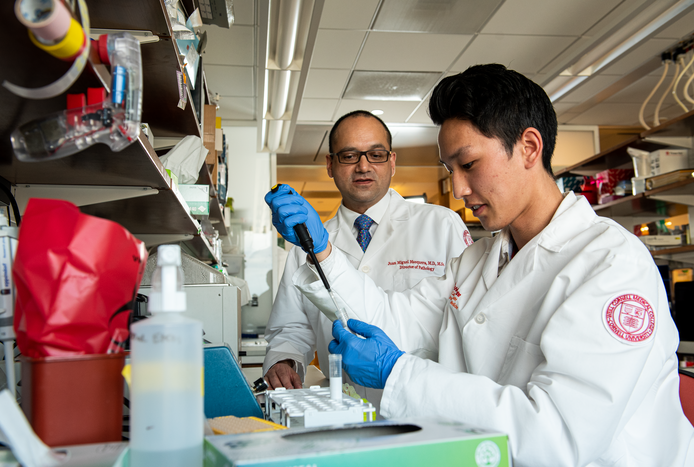By Elaine Meyer
Medicine is at a watershed moment: decades of technological advances have revealed unprecedented insights into human biology and how various physiological, genetic and lifestyle factors shape health. These findings have laid the groundwork for enduring change in medicine—an opportunity Weill Cornell Medicine is seizing with its June 17 launch of We’re Changing Medicine, a campaign to raise $1.5 billion for an expansive vision of medicine that will make a global impact. The historic investments will serve as the foundation for discovery of new approaches to prevent, detect and cure disease, a vision of care that is equitable and individualized to each patient, and the training of diverse future healthcare leaders. It’s an ambitious pursuit, one befitting the brainpower and achievements of an institution credited with life-changing healthcare innovations.
With more than $750 million raised already, the campaign creates a new synergy between Weill Cornell Medicine’s tri-partite mission to care, discover and teach, with a laser focus on three areas. The institution hopes to revolutionize the rapid acceleration of therapeutics from the bench to the bedside by harnessing the latest scientific approaches—such as translational cellular therapy, regenerative medicine, and artificial intelligence—and reimagining the foundational research landscape to benefit millions of patients around the world. It plans to build a world-class precision health enterprise that uses breakthrough data science to personalize prevention and care, with the long-term goal of changing the trajectory of preventive medicine. And it is poised to transform the medical school experience for a gifted student body through debt-free medical education and the construction of a new residence hall for students to thrive and realize their highest potential.
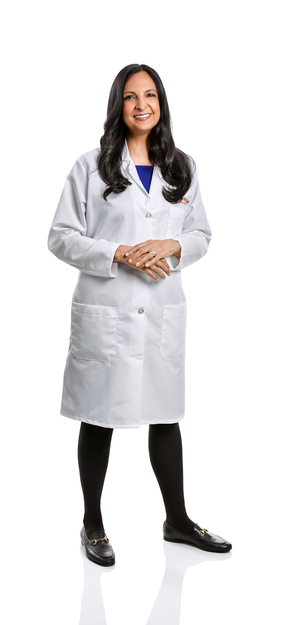
Dr. Rainu Kaushal
In addition to representing an investment in Weill Cornell Medicine, the campaign will encourage further collaborations with Cornell’s Ithaca campus, as well as Cornell Tech and Weill Cornell Medicine–Qatar, and partners and affiliates NewYork-Presbyterian, Memorial Sloan Kettering Cancer Center, The Rockefeller University, Hospital for Special Surgery and Houston Methodist. “Science is a team sport, and when you can bring different disciplines together, it can transform patients’ lives,” says Jessica M. Bibliowicz, chairman of the Board of Fellows. “There are so many opportunities for us to collaborate with world-class researchers and clinicians in our own ZIP code, as well as across the country and around the world. Collaboration is who we are, and it’s how we change medicine.”
Adds Sanford I. Weill, chairman emeritus of Weill Cornell Medicine’s Board of Fellows and campaign co-chair: “Weill Cornell Medicine’s world- class physicians, scientists and students are making tremendous strides every day to ensure that patients around the globe receive the best medical care. Leveraging our strengths and sharing our talents with the world, we’re changing medicine for the better, but there is always more work to do. By further investing in what makes us special, we can realize our new vision of healthcare. I am so excited about what we can—and must—accomplish together with this new campaign.”
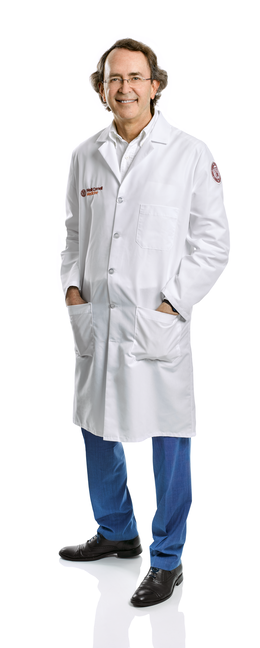
Dr. Hugh Hemmings
Already, generous philanthropic investments over decades have enabled Weill Cornell Medicine to translate breakthrough research discoveries into providing world-class patient care. Campaign leaders expect that the latest fundraising will help the institution’s physicians and scientists make further strides that once would have been unachievable, enabling them to care for patients and their families over the course of their lives. “For four generations—now including my grandchildren—my family has benefited from the extraordinary medical care and scientific innovation that flourish at this institution,” Jeffrey Feil, vice chair of the Board of Fellows and campaign co-chair, said in remarks at the June 17 launch. “What makes Weill Cornell so special is the people—doctors and researchers—and the relationships that are forged over time. Through the We’re Changing Medicine campaign, we will support our remarkable healers.”
The Place to Change Medicine
The “secret sauce” that enables Weill Cornell Medicine to change medicine is its uniquely interconnected research, education and patient care infrastructures, according to Dr. Augustine M.K. Choi, the Stephen and Suzanne Weiss Dean of Weill Cornell Medicine. “Weill Cornell Medicine has a one-of-a-kind culture that makes anything possible. Our culture of collaboration and teamwork—widely acknowledged on our campus and beyond—breaks down silos and fosters unique discoveries that impact our patients’ lives,” Dr. Choi said in his remarks at the launch event, which occurred virtually from the Belfer Research Building. “Exciting advances in foundational sciences, genomics, artificial intelligence, population health science and other data-centric technologies have opened a new frontier of opportunity for our students and faculty. And most importantly, we have the opportunity to provide novel impactful diagnostics and therapeutics for our patients. Weill Cornell Medicine is ready to leverage these new possibilities and launch a new era of biomedicine and healthcare.”
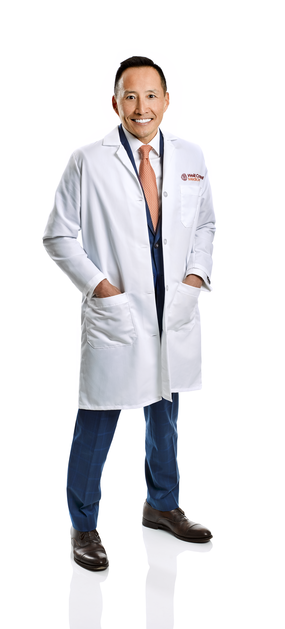
Dr. Robert Min
To realize this vision, the institution will invest in construction of new and expanded laboratory space across disease areas, advanced technology for precision health and artificial intelligence (AI), and recruitment and retention of top physician-scientists from around the world. “To be at the cutting edge in discovery and treatment, we need to support the most advanced, most sensitive, most high-resolution techniques available,” says Dr. Hugh C. Hemmings, senior associate dean for research and chair of anesthesiology at Weill Cornell Medicine and anesthesiologist-in-chief at NewYork- Presbyterian/Weill Cornell Medical Center. “We have to invest broadly and facilitate interdisciplinary research, because any of our talented scientists could make the next discovery that will change patients’ lives.”
The aim of these investments is to expand federal research funding and advance care in high-priority areas like cardiology, metabolic health, cancer, brain health and women’s and children’s health. “We have all had a front-row seat during the pandemic to the power of science, and what it allows us to accomplish,” says Dr. Barbara Hempstead, dean of the Weill Cornell Graduate School of Medical Sciences and the O. Wayne Isom Professor of Medicine, referring to the speed at which scientists around the world collaborated to sequence the SARS-CoV-2 genome and create effective COVID vaccines. “I can’t think of a better time for us to invest in science that will transform patient care.”
The Weill Cornell Medicine vision of changing medicine is centered around making patients partners in their care, says Dr. Rainu Kaushal, senior associate dean for clinical research and chair of the Department of Population Health Sciences: “We can take insights from our patients and from their data and use that to make important research breakthroughs, and on the order of weeks to months, reintroduce that into practice to transform the way we’re delivering medicine.” In addition, investing in powerful, transparent and ethical methods of collecting, analyzing and storing patient data represents an unparalleled opportunity for clinical care at the population level—including the development and use of precision health techniques—to account for the diversity of New York City. “Our investments in precision health will allow us to utilize data on patients’ risks, behaviors and environment in order to reduce disparities, promote health equity and enable everyone to attain their full health potential,” says Dr. Robert J. Min, president and CEO of the Weill Cornell Medicine Physician Organization, chair of radiology at Weill Cornell Medicine, and radiologist-in-chief at NewYork-Presbyterian/Weill Cornell Medical Center. “This is a top priority for Weill Cornell Medicine.”
Weill Cornell Medicine is also making a long-term investment in education by recruiting students from historically excluded communities, to train a healthcare workforce that better reflects the country’s demographics. A significant piece of this strategy is funding the endowment for Weill Cornell Medical College’s two-year-old debt-free program, which ensures future physicians and scientists can access medical education regardless of ability to pay for it. “Diverse care teams lead to more innovation and creativity and better health outcomes for patients, and diverse communities are more likely to trust the system when they see we have a workforce that represents all of society,” says Dr. Linnie Golightly, associate dean of diversity and an associate professor of clinical medicine and of medicine in microbiology and immunology. “This is why at Weill Cornell, we must invest in recruiting students from historically disadvantaged populations and teaching and mentoring all of our students to provide culturally sensitive care across populations.”
Precision Medicine and the Future of Precision Health
Weill Cornell Medicine’s Englander Institute for Precision Medicine is at the forefront of using computational biology to tailor the treatment of cancer, working closely with the Meyer Cancer Center and researchers in molecular and genomic pathology. “Precision medicine is a whole new way to think about and treat cancer,” says Dr. Olivier Elemento, director of the Englander Institute, a professor of physiology and biophysics and of computational genomics in pathology and laboratory medicine, and a member of the Meyer Cancer Center. “We now have access to technologies like high-throughput sequencing that help us scan entire genomes in just a few hours and understand what is driving the disease within each patient.” Unlike treatments that use a blanket strategy of radiation or chemotherapy to destroy tumors, precision medicine is about creating a therapy that targets a particular mutation, which varies from patient to patient. “The idea is to gain insights into the disease you’re treating, so if the patient’s tumor is expressing a gene or protein that is mutated, and we fully under- stand its biological function, we can target it specifically,” says Dr. Massimo Loda, chair of the Department of Pathology and Laboratory Medicine at Weill Cornell Medicine, pathologist-in-chief at NewYork-Presbyterian/Weill Cornell Medical Center, and deputy director of the Meyer Cancer Center. “Then ideally we develop a therapy that is precise for that patient.”
In order to radically improve diagnostic and treatment capabilities and develop strategies tailored to the individual patient, Weill Cornell Medicine is investing in an expansion of precision medicine that goes well beyond cancer. This effort will require the expertise of physician-scientists at the Meyer Cancer Center and others in computational biology, data science, genomics and epi-genomics, population health sciences, cancer, pathology and clinical research, as well as massive computing power to collect and aggregate information from genetic sequencing, imaging, pathology labs and other sources. Using this information, clinicians can identify high-risk patients and recommend early intervention strategies to not just treat but prevent disease—a concept called precision health. “The future of medicine is about applying precision health to every disease,” says Dr. Elemento. “Whole genome sequencing will allow us to understand how to treat illnesses like diabetes and heart disease and how to match each patient to the right therapy based on his or her genes and how to prevent such diseases from occurring in the first place.”
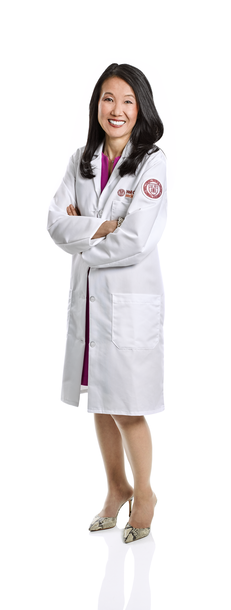
Dr. Yoon Kang
One preview of what’s to come is an AI model developed by Englander Institute scientists to automate the process of analyzing radiology images and mapping them to biopsy results. This can be used to predict, for instance, whether someone has an aggressive form of cancer. “Through investment in AI and machine learning, we’re going to have diagnostic capabilities far beyond what we can do today, and we’ll be able to target therapies in ways that will allow us to treat more diseases more safely and with shorter recovery periods,” says Dr. Min, also a member of the Meyer Cancer Center. “These are advances we’re on the cusp of attaining.”
Health Beyond the Hospital
In a related effort, Weill Cornell Medicine scientists are conducting bold research to understand its diverse patient population. Data scientists, epidemiologists and informaticists have the capability to aggregate and analyze massive amounts of population data such as where someone lives, their environmental exposures and their electronic health record information. “The way in which we deliver healthcare across the country has not caught up yet to the explosion in data,” says Dr. Kaushal. “That’s why it’s urgent for us to invest in data science, to understand our patients’ lives outside the hospital.”
Analyzing information from a variety of sources—including de-identified data from electronic health records, patients’ responses to mobile health applications, and government data on social and economic conditions in the neighborhoods of Weill Cornell Medicine patient populations—clinicians can recognize health disparities and take action. For example, after identifying characteristics that put people at higher risk of cancer, Weill Cornell Medicine care teams have conducted outreach to help at-risk patients attain screening. They’ve also acted on data showing some patients had limited transportation to their healthcare facilities by assigning care managers to their homes. “A lot of this work focuses on very vulnerable patients who have significant interaction with the healthcare system that could be averted or prevented,” says Dr. Kaushal.
Committing to Health Equity and Anticipating the Next Pandemic
Weill Cornell Medicine’s long-standing commitment to diversity and inclusion positioned the institution to meaningfully address the race and ethnic disparities amplified during the pandemic and the social justice movement of 2020. Researchers put out findings early on showing COVID-19 infections were concentrated in overcrowded neighborhoods. In the spring and summer of 2020, diversity leadership held weekly virtual town halls to address racial inequity in infection and death as well as larger structural inequalities that predicted the pandemic fallout. In response to conversations from town halls and other community meetings, Dean Choi put forward a list of concrete steps to promote anti-racism at Weill Cornell Medicine.
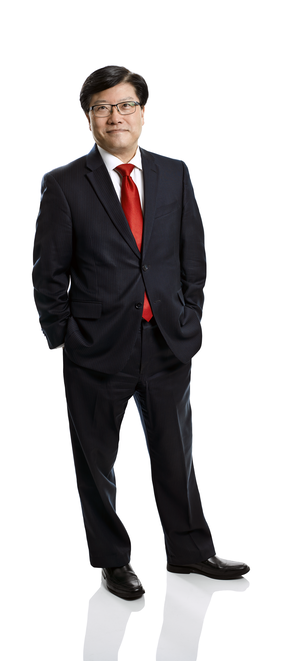
Dr. Augustine M.K. Choi
The institution is currently working to vaccinate over 100,000 New Yorkers in underserved areas with the help of medical student vaccinators. To address hesitancy, trainings were provided so clinicians can answer patients’ vaccine questions. An NIH grant is funding a multidisciplinary investigation of inequities in COVID outcomes based on race and socioeconomic status. “The historic events of the last year have made our action on diversity, inclusion and anti-racism more important than ever,” says Dr. Golightly.
Part of an equitable approach to healthcare means anticipating future pandemics, which, like COVID, may have worse effects on those who are socially disadvantaged. When COVID hit New York in March 2020, research and clinical teams across the institution worked at unprecedented speed to treat the growing number of infected patients. The Division of Infectious Diseases, which has a history of running large NIH-funded clinical trials on treatments and vaccines for infectious diseases, pivoted quickly. Weill Cornell Medicine became the only site in New York City to run a clinical trial of the highly effective Moderna vaccine, which, along with Pfizer’s, was the first to be authorized for emergency use. The infectious disease team also decided in March 2020 to study remdesivir, one of the earliest medications found to treat COVID-19 symptoms.
Specialists in areas like pulmonology, rheumatology, infectious diseases, hematology and obstetrics/gynecology worked together to create standards of care on intubation, blood clotting, postpartum care and cancer treatment. Weill Cornell Medicine scientists also made some of the earliest findings on risk factors for severe COVID such as obesity, and created models relied on by the New York state government to monitor the infection rate. Across disciplines, researchers have published findings illuminating long-haul symptoms of the virus including neurological disorders, lung pathology and heart damage, as well as research showing the virus’s distinct epigenetic signature. “The collaboration has been truly phenomenal here,” says Dr. Roy M. Gulick, chief of the Division of Infectious Diseases and the Rochelle Belfer Professor in Medicine. “I have been at Weill Cornell for 23 years; COVID-19 opened doors and introduced me to people I’d never met before.”
In a globalized world, the next pandemic is not a question of “if,” but “when.” For this reason, Weill Cornell Medicine plans to invest in infectious disease research and training to develop vaccination and immunization tools for future infectious diseases as well as existing viruses. This will include expanding virology laboratories and advancing clinical research projects within Weill Cornell Medicine global health initiatives in Brazil, Ghana, Haiti and Tanzania, where infectious disease experts have already made advances on HIV/AIDS, hepatitis, malaria and tuberculosis. “We know there’s likely to be another infectious disease that could spread around the world again, and we want to be ready,” Dr. Gulick says. “We need laboratory scientists who can apply their tools to the next big threat, clinical research to test new drugs, and clinicians who are ready to take whatever next challenge comes along.”
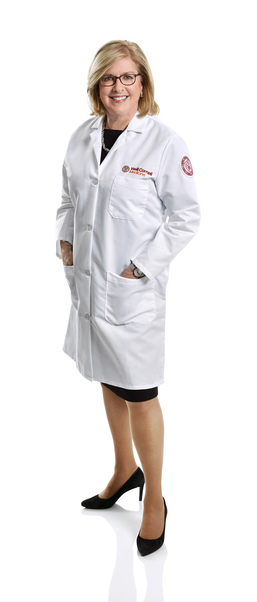
Dr. Barbara Hempstead
The Future of Pediatric Research
In the last year, Weill Cornell Medicine obstetrician/gynecologists, pathologists and microbiologists have helped set the standard of care for pregnant mothers through findings on how antibodies and vaccines are transferred between mother and child to confer some immunity to COVID-19. “Our work is focused on learning about the maternal and infant immune systems, vaccinating mothers to prevent viruses from being transmitted to the baby and leveraging the unique qualities of the infant immune system for protection that will last throughout life,” says Dr. Sallie Permar, chair of pediatrics at Weill Cornell Medicine and pediatrician-in-chief at NewYork-Presbyterian/Weill Cornell Medical Center, who was recruited to Weill Cornell Medicine as the Nancy C. Paduano Professor of Pediatrics.
The capital campaign will support expanding pediatric research initiatives such as bio-banking and a virology and vaccine center, so scientists can develop COVID-19 vaccines and others targeted for maternal and infant immune systems. Investments will go toward recruiting pediatric clinicians and researchers who will collaborate with scientists in the Drukier Institute for Children’s Health. “An important lesson has come out of this time: we can’t leave vulnerable populations as the last piece of the research,” says Dr. Permar. “We are not just changing medicine for one hospitalized child but for a community of children—not only in New York City but around the globe.”
A Dynamic Biomedical Corridor
The vision of the We’re Changing Medicine campaign will be reflected through architectural changes on the York Avenue biomedical corridor, the heart of Weill Cornell Medicine’s medical campus. Changes will include new laboratories in the Belfer Research Building and an upgrade to basic, translational and clinical labs at 1300 York Avenue, to accommodate the growth of research programs. The lobby at 1300 York will be opened up to create a livelier and more accessible entrance for patients, faculty, students and staff, and renovations to Uris Auditorium will encourage community events on campus.
Philanthropy allows academic medical centers like Weill Cornell Medicine to advance quickly and prepare for the future. With more than $750 million in commitments for the We’re Changing Medicine campaign already secured, meeting the $1.5 billion target through philanthropic donations is essential to realize its lofty goals. “Weill Cornell is already changing medicine every day, and through this fundraising campaign we can go even further,” Dr. Choi said in his campaign launch remarks. “Transformational growth like this could not happen without an extraordinary community of devoted individuals. Through these strategic efforts, we will continue to change medicine for the better—because we can. And because our patients need us, we must.”
Equal Opportunities
Making a Weill Cornell Medicine Education Affordable to All
Weill Cornell Medicine’s debt-free medical education program represents a historic effort to level the playing field for future physicians. In 2019, Weill Cornell Medical College replaced student loans with scholarships that cover tuition, housing and other living expenses so students can attend the top- ranked medical school regardless of their economic background.

Briana Lui
That year, during the campaign’s quiet phase, a lead gift from The Starr Foundation, chaired by Weill Cornell Medicine Board of Fellows member Maurice R. Greenberg—in partnership with gifts from The Weill Family Foundation, created by Joan and Sanford I. Weill, and other generous donors that together totaled $160 million—established a game-changing scholarship program that provides debt-free education to medical students in financial need. The We’re Changing Medicine campaign will raise $46 million for an endowment so it continues in perpetuity. “Since its founding in 1955, The Starr Foundation has donated hundreds of millions of dollars to scholarship funds around the world, but our grant to Weill Cornell is the largest in our history,” says Greenberg, chairman of The Starr Foundation. “We are pleased to help Weill Cornell students who otherwise would graduate from medical school with significant debt.”
According to a JAMA study earlier this year published by Dr. Yoon Kang, senior associate dean for education and others, the program impacted the diversity of the Class of 2024—the first incoming class to benefit from it. Compared with an average from the preceding four classes, the percentage of students from underrepresented minority groups rose from 20 to 29 percent and those from public colleges increased from 24 to 35 percent. “New York City provides an incredibly diverse and enriched living and learning environment for our medical students, and the York Avenue scientific and clinical care corridor offers an astounding opportunity for our students to grow and discover,” Dr. Kang says. “For students who may not have thought about coming to medical school, the debt-free initiative gives them that opportunity—and ultimately creates diverse thought leadership in medicine.”
Free of debt, students are empowered to choose a specialty based not on how lucrative it is, but on their passion.
The support has been transformational for Briana Lui ’24, a medical student from Queens who is interested in working to reduce health disparities as a physician. “It was a miracle that
Weill Cornell had the debt-free initiative when I was applying,” says Lui.
“I wouldn’t be able to pursue a career in medicine if the school didn’t have this pro- gram. Having the school’s support relieves not just a financial burden but an emotional one.”
Living & Learning
New Student Housing will be More than Just a Dorm

Tom Rosetti
When students decide to attend Weill Cornell Medicine, one of their biggest concerns is finding housing in New York City. That’s why Weill Cornell Medicine’s We’re Changing Medicine campaign is supporting the construction of a new student residence at the corner of East 74th Street and York Avenue. “As medical and graduate students pursue their biomedical training, it is critical to provide them with a nurturing living and learning environment,” says Jeffrey Feil, Board of Fellows vice chair and campaign co-chair, who with the Feil Family donated $55 million to support its construction. “We are thrilled to support this new residence hall, which will encourage a culture of innovation, collegiality, and collaboration to inspire our future leaders to keep changing medicine.” The proposed 148,000-square-foot building will feature spacious apartments and modern amenities to enhance student life for MD, MD-PhD, and PhD students. It will have amenities including a fitness center, meeting rooms and places for students to relax, and will give students more housing options within blocks of the medical campus. “We expect an awful lot of our students: they’re expected to do their best, to work hard, and to dream big,” says Dr. Barbara Hempstead, dean of the Weill Cornell Graduate School of Medical Sciences and the O. Wayne Isom Professor of Medicine. “We need to be able to support them as they strive to meet those expectations and having a state-of-the-art residence hall is key to us helping them to do that.”
Tom Rossetti, a doctoral student in pharmacology who volunteers with recruitment for the Graduate School of Medical Sciences, says housing options are a key factor in prospective students’ choice of medical and graduate programs. “It’s extremely important to the students if they know they don’t have to worry about housing,” he says. “Weill Cornell Medicine gives students the tools to succeed, and housing is one of them—not only does it make graduate school more affordable, it reinforces the nurturing, genuinely happy community that made it my top choice to become a scientist.”
This story appears in the Weill Cornell Medicine Summer 2021 issue.

